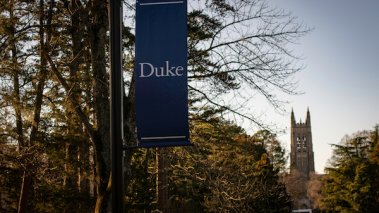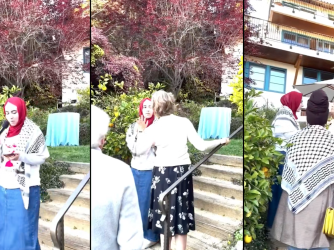Table of Contents
Duke student senate passes resolution condemning antisemitism but leaves pro-Israel club unrecognized

Forge Productions / Shutterstock.com
Last week, Duke’s student senators passed a resolution condemning antisemitism after participating in training on the subject last month. While the Duke Jewish Life presenters said they did not hold the training because of any position of the student government, the training and resolution come just months after Duke’s student senate ultimately refused to recognize a pro-Israel club.
In November, Duke’s student senate upheld the student government president’s veto of a prior vote to recognize a campus chapter of Students Supporting Israel. The veto came after Duke SSI responded to a critic in an Instagram post — a response deemed insufficiently inclusive. Three months later, despite numerous calls from elected officials and civil liberties organizations, including two letters from FIRE, the group remains unrecognized by the university. (Although the university has said that it will provide “options for SSI to secure financial and programmatic support.”)
That’s why student government’s decisions to pass the antisemitism resolution and participate in the training look like prime examples of a university body appearing to make a positive change while not actually addressing the discriminatory conduct at issue. Resolutions — like this one passed by Duke’s student government — serve as band-aids meant to repair reputations rather than actual efforts to improve processes and conduct. None of the provisions actually address the necessity of using objective criteria when granting student organizations membership, or the viewpoint discrimination that resulted in the denial of SSI’s recognition.
Additionally, this resolution worsens rather than improves the state of free expression at Duke. The International Holocaust Remembrance Alliance’s definition of antisemitism — which the student senate adopted as part of its resolution — labels core political speech protected by the First Amendment as antisemitic. Since 2015, FIRE has argued that this definition threatens free expression. Maybe the student government would also benefit from free expression training.
But now that Duke’s student government has officially claimed it’s not antisemitic, perhaps it can spare the time to establish that it’s not a censor. It can do so by finally granting SSI recognition.
FIRE defends the rights of students and faculty members — no matter their views — at public and private universities and colleges in the United States. If you are a student or a faculty member facing investigation or punishment for your speech, submit your case to FIRE today. If you’re faculty member at a public college or university, call the Faculty Legal Defense Fund 24-hour hotline at 254-500-FLDF (3533).
Recent Articles
FIRE’s award-winning Newsdesk covers the free speech news you need to stay informed.

Salman Rushdie calls out left-wing censorship in CBS interview

Western Washington University punishes racing team for sending a photo of a penis drawing on a pizza box

No, the Berkeley Law student didn’t have a First Amendment right to interrupt the dean’s backyard party
